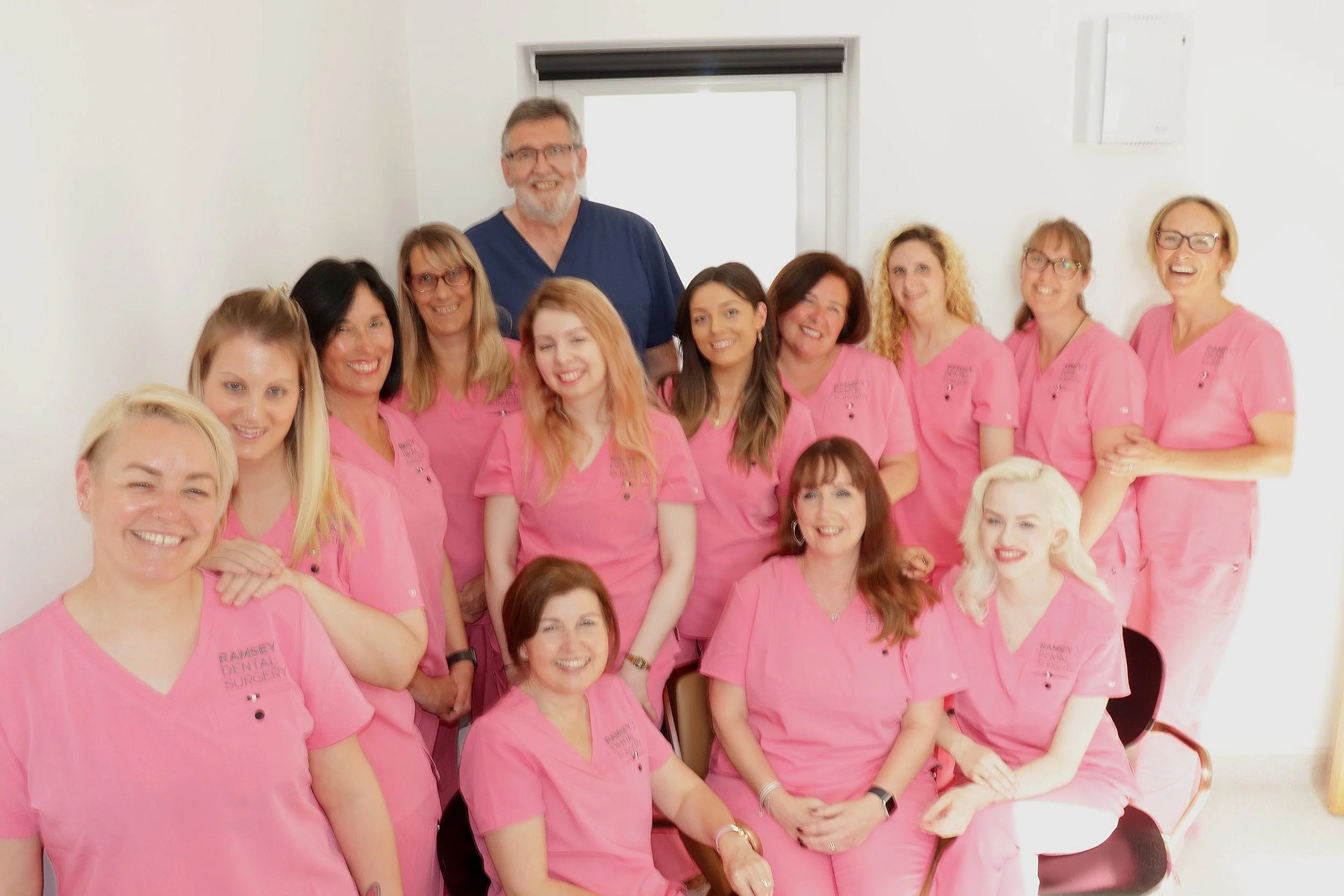On this page
+ Dental hygiene
+ Daily hygiene routine
+ Tooth friendly diet
+ Detecting tooth decay
+ Mouth cancer screening
Dental hygiene
If it is not treated properly, over time gum disease can cause teeth to become loose and possibly even fall out.
One of the primary causes of gum disease is dental plaque and poor dental hygiene. Dental plaque forms constantly as a layer of bacteria on the surface of our teeth and gums. If plaque is allowed to stay on the teeth and not removed by brushing, it can irritate the supporting structures of the teeth and create pockets below the gum line. If left for too long the plaque hardens into tartar, which cannot be removed by a toothbrush alone, regardless of how well you brush your teeth.
To ensure your mouth stays healthy, fresh and clean, a dental hygiene appointment professionally cleans your teeth so they stay free from tartar.
It helps prevent the problems tartar can cause such as bad breath, bleeding and increased risk of gum disease.
When gum disease is left untreated, it has the potential to cause long-term problems including bone recession or tooth loss, it has also been linked to heart disease.
Prevention is key, and ensuring you brush your teeth twice a day and regularly visit your dentist can mean your teeth can last a lifetime.
Ramsey Dental Surgery’s Best Practice daily hygiene routine
Brush your teeth both morning and night on all areas and surfaces of your teeth and gums. We recommend using an electric toothbrush (such as any Oral B- oscillating brush) for a full two minutes using the timer on the toothbrush. Make sure the bristles of the brush are half on the gumline and half on the tooth.
Use tepes ( brushes or easypicks) floss/flossettes or other interdental aids every day to remove plaque between your teeth.
For fresh breath, use a tongue scraper to remove debris from the surface of your tongue.
To help protect your tooth enamel from acid and sugar attack, brush a pea-sized blob of fluoride toothpaste quickly around the surfaces of your teeth at the end of your routine to protect them from cavities. If you need to you can spit - but don’t rinse.
A tooth-friendly diet
Avoid eating acidic or sugary foods too often and, should you fancy something sugary, then it’s best to eat it all in one go rather than making it last too long. It’s also best to eat it straight after a meal.
Foods that are highly acidic such as citrus fruits, fizzy drinks or wine may soften your enamel, so avoid brushing your teeth for a minimum of thirty minutes after eating. Instead rinse out your mouth with water or chew sugar-free gum.
Detecting tooth decay
We strongly recommend regular check-ups and X-rays for our patients so that we can detect any potential decay as soon as possible and take action to avoid any extensive and expensive treatment at a later stage.
Screening for mouth cancer
A number of factors such as smoking, unhealthy diets and drinking can increase the risk of mouth cancer. As early detection can improve treatment outcomes, we examine every patient for any signs of mouth cancer during check-ups.
More services
To book a routine appointment or consultation call us on 01487 812312
Alternatively you're welcome to drop into our practice and speak to our staff anytime during opening hours. We’re always happy to hear from you.



